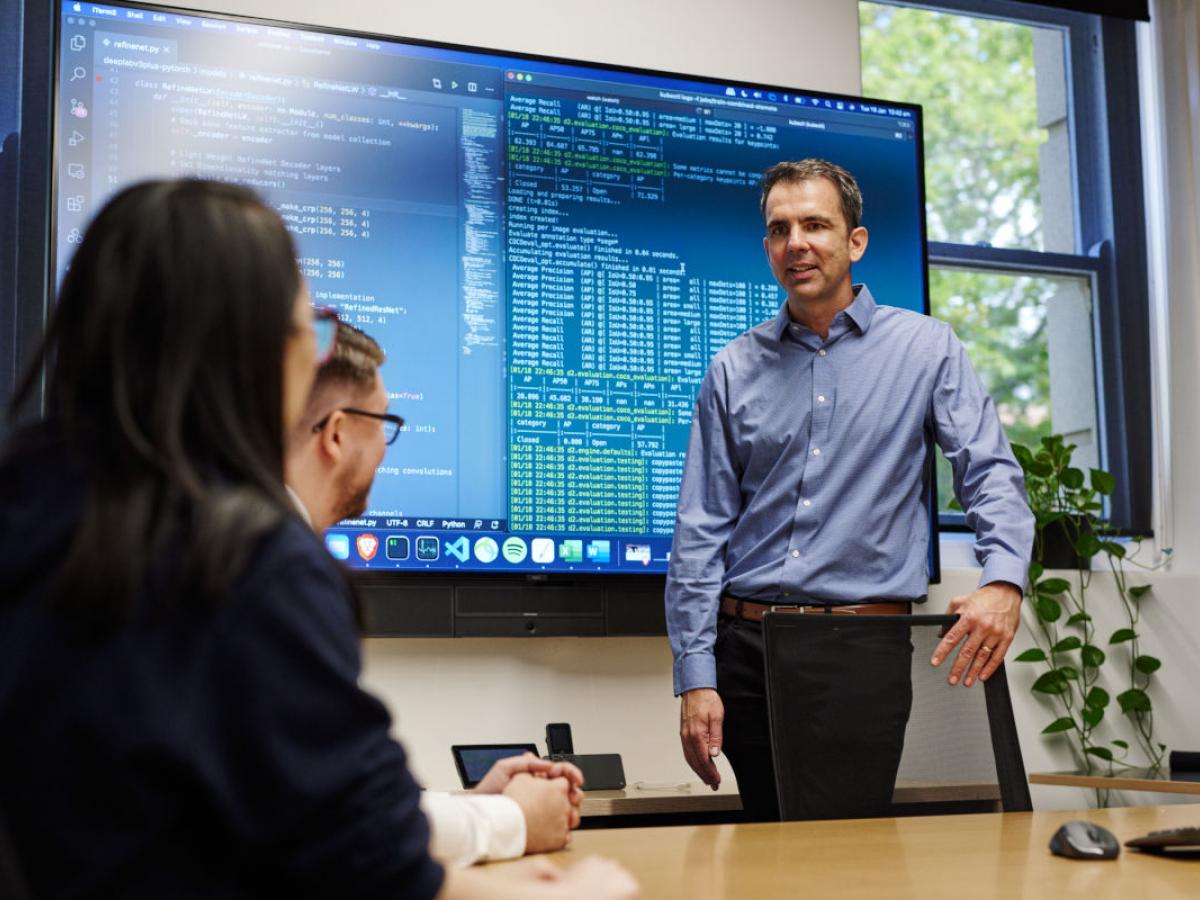Hybrid academic, industry roles for AI tech talent return to Aus
Story by: Eddie Major and Kurtis Eichler
Prioritising hybrid academic and industry roles and targeting them to specific technology sectors would help entice top expat researchers to return to Australia and also address the country's skills shortage in artificial intelligence, according to AIML Director Professor Simon Lucey.
Hybrid working arrangements allow leading researchers to split their time between academic roles and private industry. While common in the US, hybrid roles are relatively new to Australian universities.
Such arrangements are useful for industries such as AI, where specialist skills are in extremely high demand and leading researchers can attract huge salaries which public universities cannot justifiably afford.
Tech companies also find hybrid roles strategically beneficial, as they allow them to tap into industry-aligned research capability and draw from a growing workforce talent pool of PhDs and graduates.
Australian Institute for Machine Learning (AIML) director Professor Simon Lucey says Australia should focus on fostering targeted hybrid appointments in specific sectors, such as AI.
He says that while Australia had successfully attracted people to return through industry fellowship programs, this hasn't been targeted at specific industries.

Professor Simon Lucey
"What I notice happens is that top people come back, but it's hard to generate critical mass around them," Lucey said.
Lucey is one example of a successful hybrid appointment. The computer vision researcher and University of Adelaide professor is also a principal scientist for Argo AI, a Pittsburgh-based multi billion-dollar autonomous vehicle company backed by Ford and Volkswagen.
"This gives companies the ability to let universities know what problems they care about in an in-depth way. So rather than coming in and having a pitch, they're employing a part of the university to come and understand their problems."
Lucey says hybrid agreements allow students to work with professors to solve real-world problems. If they are set up around top universities an "ecosystem" can then build up around them.
He pointed to Professor Anton van den Hengel, AIML’s founding director, as an example.
Professor van den Hengel is also a director of applied science at Amazon where he leads a team of 37 machine learning researchers and interns based out of Adelaide’s Lot Fourteen innovation precinct, mere meters from the University of Adelaide’s main campus.
"There's more of it happening, and we can point to various parts around the world where this has been very, very successful," Lucey says.
"I'm working for Argo AI, and I've come from a very successful example of that in the US where they basically have purposely set up in Pittsburgh to have access to the best professors at Carnegie Mellon.”
"So it creates jobs and opportunities to such an extent now that Pittsburgh's called 'Roboburgh'. That's what we want for Australia.”

The anchor tenant to Lot Fourteen — South Australia's innovation precinct — the Australian Institute for Machine Learning (AIML) is one of Australia's largest machine learning research facilities, and a global leader in computer vision capability.
Industry appetite for hybrid arrangements in AI isn’t new. In 2017 Google’s DeepMind established a research office in Edmonton, Canada, to work with University of Alberta professor Richard Sutton, a pioneer of AI reinforcement learning.
Other examples of hybrid leadership roles in the AI sector include Google and the University of Toronto, Apple and Carnegie Mellon University, and Facebook (Meta) and New York University.
Lucey said it's important to entice Australians back from overseas because they bring a "richness of experience", adding that a translation of that experience often opens up opportunities and the potential for larger investment in the sector.
"Investment tends to follow top professors, and it's something tangible that Australia can tap into. We have all this top talent around the world."
"If we can somehow bring them back, and they're not necessarily coming back for their pay packet, they're coming back for the lifestyle… but we can bring the companies with them, and the investment, and the knowledge, and the jobs that should come."
